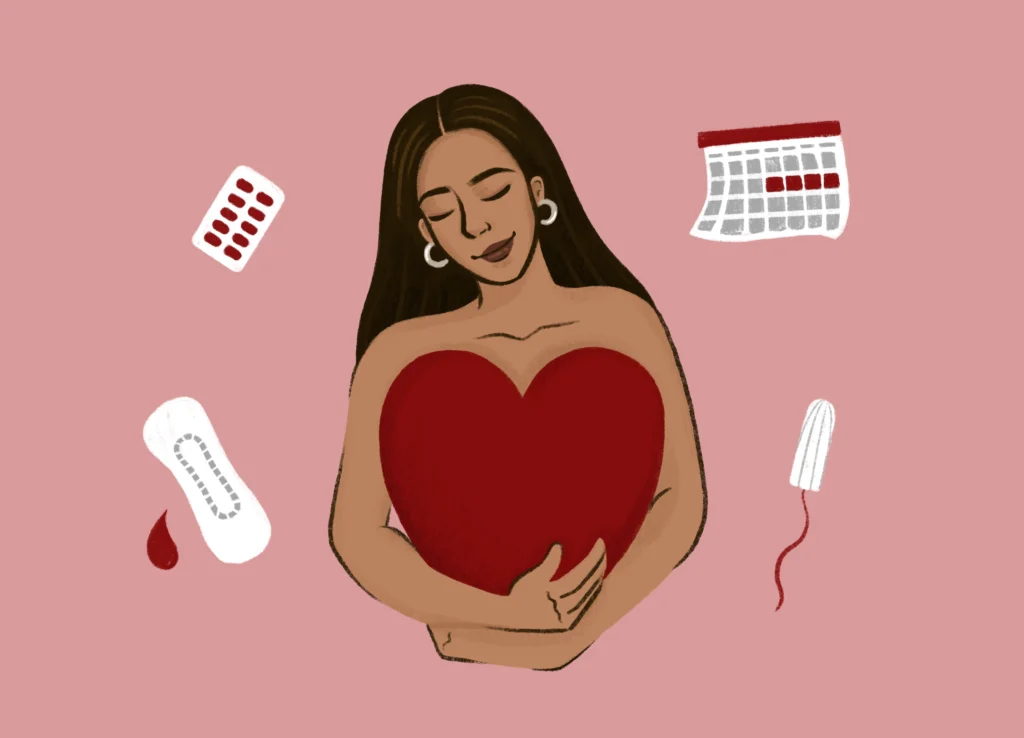Retrograde Menstruation: According to medical professionals, individuals who experience retrograde menstruation may be more susceptible to endometriosis. A common condition known as endometriosis occurs when the lining of your uterus grows outside of it.

When you have retrograde menstruation, it’s conceivable that cells from your endometrium (the lining of your uterus) develop on your abdomen or pelvic organs.
What Is Retrograde Menstruation?
Retrograde menstruation is when blood from your period flows backward into your abdomen instead of out your vagina. In a typical menstrual period, your uterine lining (which is a mix of blood and tissue) flows downward and out your vagina.
With retrograde menstruation, the blood flows up through your fallopian tubes and into your abdomen. Retrograde menstruation is common and doesn’t typically cause problems.
Who Is Likely to Get Retrograde Menstruation?
Retrograde menstruation can occur in any person who has periods. It is typically not a reason for concern and is a typical aspect of the menstrual cycle. When it results in unpleasant symptoms or a disease like endometriosis, it becomes an issue.
Do You Bleed with Retrograde Menstruation?
Indeed. Though some of the blood is directed in the wrong direction, those who have retrograde menstruation still have vaginal bleeding. The blood enters your abdominal and pelvic cavities through your fallopian tubes rather than exiting your vagina.
The cells may then proliferate deeper into the abdominal or pelvic organs or superficially on the peritoneum, which is the lining of your abdominal wall that surrounds your stomach, spleen, intestines, and other abdominal organs.
Symptoms and Causes
A painful period is the most common symptom of retrograde menstruation, but some people may report a lighter period because the blood is flowing back into their abdomen rather than out their vagina into their pad, tampon, or menstrual cup. Although this may sound concerning, some retrograde menstruation is normal.
What Causes Retrograde Menstruation?
Although the specific origin of retrograde menstruation is unknown, many people think it may be related to endometriosis, and factors like heredity or a narrow cervical opening may also be involved.
Does Retrograde Menstruation Cause Endometriosis?
Retrograde menstruation has been linked in multiple studies to the development of endometriosis. Endometrial cells—cells found in the lining of your uterus—may enter your pelvis through your fallopian tubes if you experience retrograde menstruation. Endometriosis may result from the accumulation of cells on the pelvic organs if your body is unable to eliminate them.
Diagnosis and Tests
Retrograde menstruation may be diagnosed by your healthcare provider during a laparoscopy or other pelvic organ examination. Your doctor can examine your abdomen with this kind of operation, and they might find blood there.
Retrograde menstruation is usually diagnosed while another condition is being assessed. For instance, your doctor may find blood in your abdomen or pelvis when you visit them for endometriosis symptoms or pelvic pain.
Management and Treatment
Treatment is not necessary for retrograde menstruation unless it is contributing to other symptoms or illnesses. Hormones that stop menstrual bleeding are prescribed by certain medical professionals. This may lessen the amount of blood that returns to your abdomen.
One method of stopping retrograde menstruation is a hysterectomy, which is surgery to remove the uterus. However, this procedure is often only carried out when medically required.
How Can I Reduce My Risk of Retrograde Menstruation?

Retrograde menstruation is a common feature of the menstrual cycle that usually doesn’t cause problems. However, hormone drugs that make your period lighter can help prevent retrograde menstruation.
What Are Complications of Retrograde Menstruation?
In general, retrograde menstruation is not a cause for alarm. However, if it results in unpleasant symptoms or illnesses that impact your reproductive system, it can be cause for concern. For instance, endometriosis and other unpleasant disorders might result from retrograde menstruation.
When Should I Contact My Healthcare Provider?
If you are worried about your menstrual cycle, get in touch with a healthcare professional. This might consist of:
- Variations in the amount of bleeding.
- New symptoms, like uncomfortable periods or various types of pelvic pain.
- Lightheadedness.
- Throwing up.
To ensure that your worries are unfounded, your healthcare professional can assess your symptoms and do an examination.
Conclusion
In conclusion, hormonal changes or an obstruction may be the cause of your period feeling stuck or not coming out. It’s important to get an evaluation from a doctor if your period feels odd or different from usual.
Retrograde menstruation is typically not a reason for concern as it is a natural aspect of menstrual bleeding. If you suffer from excruciating discomfort during your period, get in touch with a healthcare professional. Treatment is necessary for more complex disorders like endometriosis that can result from retrograde menstruation.







